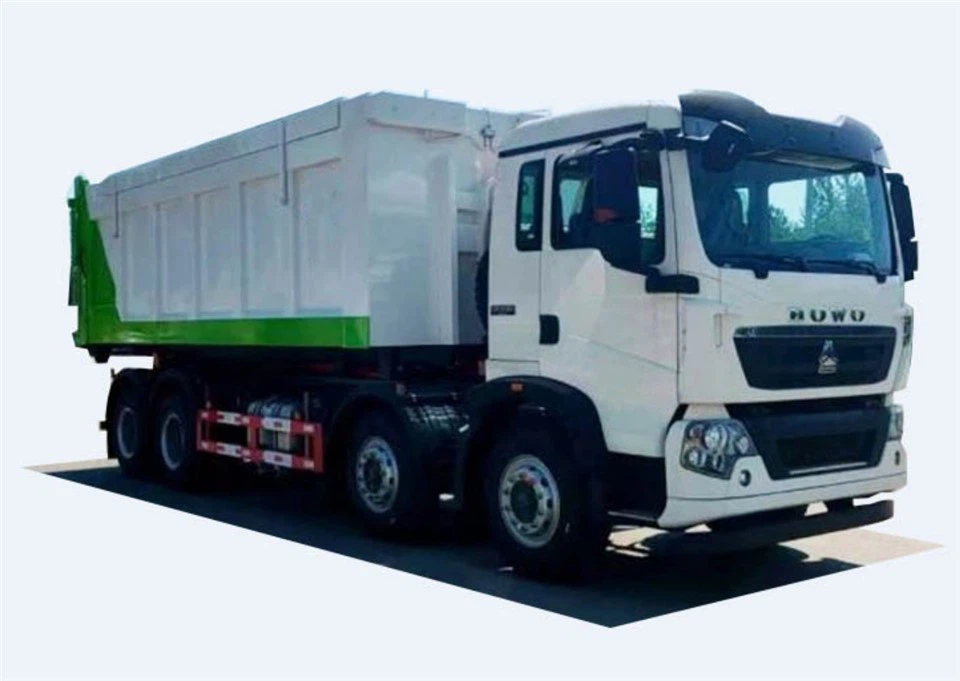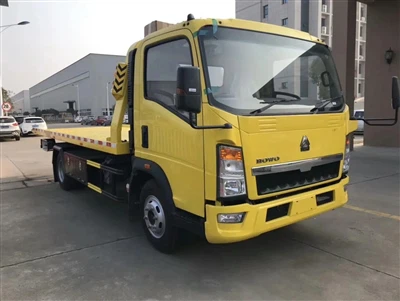What is a Lorry Truck? A Comprehensive Guide

In today’s fast-paced world, understanding the various types of transportation is essential, especially for businesses that rely on trucks for logistics. One frequently used term in the transportation industry is ‘lorry truck’. This article will cover everything you need to know about lorry trucks, including their definition, types, uses, and much more.
Table of Contents
- Definition of a Lorry Truck
- Types of Lorry Trucks
- Common Uses of Lorry Trucks
- Advantages of Using Lorry Trucks
- Key Features of Lorry Trucks
- How to Choose the Right Lorry Truck
- Maintenance Tips for Lorry Trucks
- Emerging Trends in Lorry Truck Technology
- FAQs about Lorry Trucks
Definition of a Lorry Truck
A lorry truck, commonly known in various regions as a ‘truck’ or ‘lorry’, refers to a motor vehicle designed primarily for transporting goods. These vehicles range from small pickups to large heavy-duty trucks. Lorry trucks are versatile and can be utilized for numerous purposes, making them essential for industries such as logistics, construction, and agriculture.
Types of Lorry Trucks
Lorry trucks come in several types and configurations, each designed for specific hauling tasks.
1. Flatbed Lorry
Flatbed lorries have a flat platform with no sides or roof. They are ideal for transporting large, bulky items such as construction materials and heavy machinery.
2. Box Truck
Box trucks feature an enclosed cargo area, making them suitable for transporting fragile items and providing protection from weather elements.
3. Refrigerated Lorry
Refrigerated lorries, or reefer trucks, are equipped with temperature control systems to transport perishable goods like food and pharmaceuticals.
4. Tip Truck
Tip trucks can tilt their cargo bed to unload materials quickly. They are commonly used in construction and mining for transporting aggregates and debris.
5. Low Loader
Low loaders are designed for moving heavy equipment and vehicles. Their low profile allows them to transport oversized loads legally and safely.

6. Articulated Lorry
Articulated lorries, often called articulated trucks, combine a tractor unit and a trailer. They are incredibly versatile and perfect for long-distance freight transport.
Common Uses of Lorry Trucks
Lorry trucks play a critical role in various industries. Below are some common uses:
1. Freight Transport
Lorry trucks are essential in moving goods from one place to another, handling everything from retail shipments to factory supplies.
2. Construction
In construction, lorry trucks transport building materials, machinery, and waste, facilitating the effective execution of projects.
3. Agriculture
In agriculture, these trucks are used to haul produce from farms to markets, as well as to transport agricultural equipment.
4. Emergency Services
Some lorry trucks are adapted for use as emergency vehicles, like mobile command centers or ambulances, providing crucial support during crises.
Advantages of Using Lorry Trucks
Lorry trucks offer numerous benefits, making them an integral part of logistics and transportation.
1. Versatility
Lorry trucks can accommodate a wide range of cargo types and sizes, enhancing their usability across various industries.
2. Cost-Effectiveness
Compared to other transportation methods like air freight, lorry transportation is often more affordable for large shipments.
3. Accessibility
Lorry trucks can reach remote locations that might be inaccessible by other means, providing vital services in less urbanized areas.
4. Time Efficiency
Lorry trucks enable quicker delivery of goods, critical for meeting tight deadlines in the supply chain.
Key Features of Lorry Trucks
1. Payload Capacity
The payload capacity of a lorry truck indicates its ability to carry weight. Knowing this is crucial for regulatory compliance and optimal operational efficiency.
2. Engine Size
Engine size affects a truck’s power, efficiency, and performance. Larger engines typically offer higher horsepower for demanding loads.
3. Trailer Configurations
Different trailer configurations allow versatility in cargo handling, including various attachment types for specific needs.
4. Safety Features
Modern lorry trucks often come equipped with advanced safety features such as anti-lock braking systems (ABS), stability control, and GPS systems.
How to Choose the Right Lorry Truck
Selecting the right lorry truck depends on several factors:
1. Understand Your Needs
Identify the type of goods you will transport, the distance, and frequency of trips.
2. Research Different Types
Familiarize yourself with various types of lorry trucks available to determine which aligns best with your transportation needs.
3. Consider Weight Limits
Ensure that the truck you choose complies with weight regulations to avoid penalties and ensure safety.
4. Evaluate Costs
Factor in both the purchase price and ongoing maintenance expenses to assess your investment in a lorry truck.
Maintenance Tips for Lorry Trucks
Proper maintenance is essential for ensuring longevity and operational efficiency. Here are some practical maintenance tips:
1. Regular Inspections
Conduct routine inspections of your truck’s brakes, lights, and tires to identify potential issues early.
2. Oil Changes
Adhere to recommended oil change intervals to keep your engine running smoothly. Clean oil ensures optimal performance and longevity.
3. Tire Checks
Check tire pressure and tread regularly, as proper tire maintenance is crucial for safety and fuel efficiency.
4. Keep it Clean
Regularly washing your lorry truck helps prevent rust and damage from dirt and road salt.
Emerging Trends in Lorry Truck Technology
The transportation industry is continuously evolving, with technology playing a significant role in enhancing lorry trucks. Here are some emerging trends:

1. Eco-Friendly Innovations
Electric and hybrid lorry trucks are becoming more common, reducing reliance on fossil fuels and minimizing carbon footprints.
2. Advanced Safety Systems
Many new lorries feature advanced safety systems, including lane-keeping assist and automatic emergency braking, to enhance driver safety.
3. Telematics
Telematics systems help fleet managers track vehicle performance and driver behavior, improving efficiency and service quality.
4. Autonomous Lorries
The development of self-driving lorries is underway, promising significant changes in the logistics and transportation landscape.
FAQs about Lorry Trucks
1. What is the difference between a lorry and a truck?

The terms ‘lorry’ and ‘truck’ may be used interchangeably, but ‘lorry’ is more commonly used in British English, while ‘truck’ is predominantly used in American English.
2. How much can a lorry truck carry?
The carrying capacity of lorry trucks varies widely based on their design, but they can generally carry between 3,000 to 40,000 pounds or more.
3. What are the licensing requirements for driving a lorry truck?
Drivers typically need a Commercial Driver’s License (CDL), which requires additional training and testing compared to a regular driver’s license.
4. Are lorry trucks fuel-efficient?
Fuel efficiency varies by model and usage, but many modern lorry trucks employ technology designed to maximize fuel economy.
5. How do lorry trucks impact the environment?
Lorry trucks contribute to greenhouse gas emissions, but advancements in technology aim to reduce their environmental impact through cleaner options.
6. What is the most common type of lorry truck?
Box trucks are among the most common types due to their versatility and ability to transport a wide range of goods securely.
